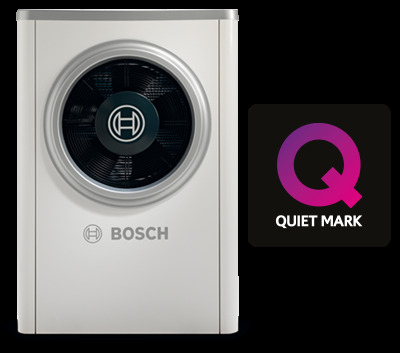AOS Blog

How Noisy Are Heat Pumps During Operation?
When considering a heat pump for your home, one common concern is the noise it might produce during operation. Noise levels can significantly affect your comfort and overall satisfaction with the system. Here's a detailed look at how noisy heat pumps in Braintree are during operation and what factors influence their noise levels.
1. Noise Levels of Modern Heat Pumps
Modern heat pumps are designed to operate quietly. Advances in technology have led to the development of units that produce minimal noise. On average, the noise level of a heat pump ranges between 40 to 60 decibels (dB). To put this into perspective, 40 dB is roughly equivalent to the sound of a quiet library, while 60 dB is similar to normal conversation levels. Therefore, most modern heat pumps operate at a noise level that is unlikely to be disruptive.
2. Factors Affecting Noise Levels
Several factors can influence the noise levels of a heat pump:
• Type of Heat Pump: Different types of heat pumps, such as air-source, ground-source, and ductless mini-splits, have varying noise levels. Generally, ground-source heat pumps tend to be quieter because the compressor is located indoors, whereas air-source heat pumps have an outdoor unit that can generate more noise.
• Location of Installation: The placement of the heat pump can significantly affect perceived noise levels. Installing the outdoor unit away from windows and bedrooms can minimise disturbance. Additionally, placing the unit on a solid, vibration-absorbing base can reduce noise transmission.
• Model and Brand: The noise level can vary between different models and brands. High-quality brands often invest in noise-reduction technologies, such as insulated compressors, variable-speed fans, and noise-absorbing materials.
3. Components Contributing to Noise
The main components that contribute to noise in a heat pump are the compressor, fans, and the reversing valve. The compressor, which is responsible for pressurising the refrigerant, tends to be the noisiest part. Fans, used to circulate air, can also produce noise, especially if they are operating at high speeds. The reversing valve, which switches the heat pump between heating and cooling modes, may produce a clicking sound during operation.
4. Reducing Heat Pump Noise
If noise is a concern, there are several steps you can take to reduce it:
• Regular Maintenance: Ensuring your heat pump is well-maintained can prevent unusual noises caused by malfunctioning parts. Lubricating moving parts, tightening loose components, and cleaning debris can all contribute to quieter operation.
• Noise Barriers: Installing a noise barrier or fence around the outdoor unit can help block and absorb sound. Ensure there is adequate space for airflow to avoid compromising the unit's efficiency.
• Soundproofing: Adding soundproofing materials to walls and windows near the heat pump can help reduce noise transmission into your home.
5. Professional Installation
Proper installation by a professional is crucial in minimising noise. An experienced installer will ensure that the heat pump is mounted correctly, with all components securely in place, and that the system is operating efficiently. They can also recommend the best location for the unit to minimise noise impact.
Conclusion
While heat pumps do produce some noise during operation, modern units are designed to be relatively quiet. With noise levels typically between 40 to 60 decibels, most homeowners find them to be unobtrusive. The type of heat pump, installation location, model, and brand all influence noise levels. By ensuring regular maintenance, considering noise barriers, and opting for professional installation, you can further minimise any noise concerns. Ultimately, the benefits of a heat pump, including energy efficiency and year-round comfort, far outweigh the minor noise it may produce.





